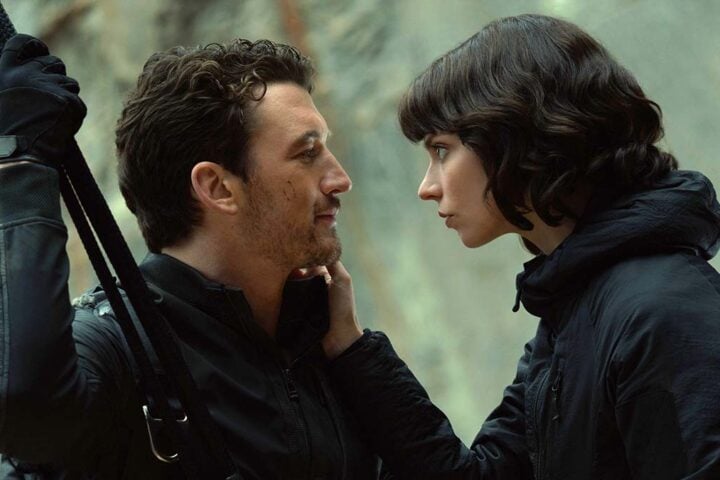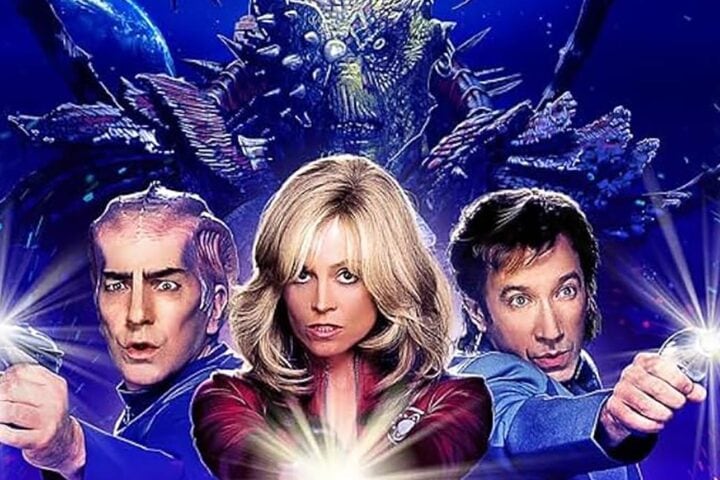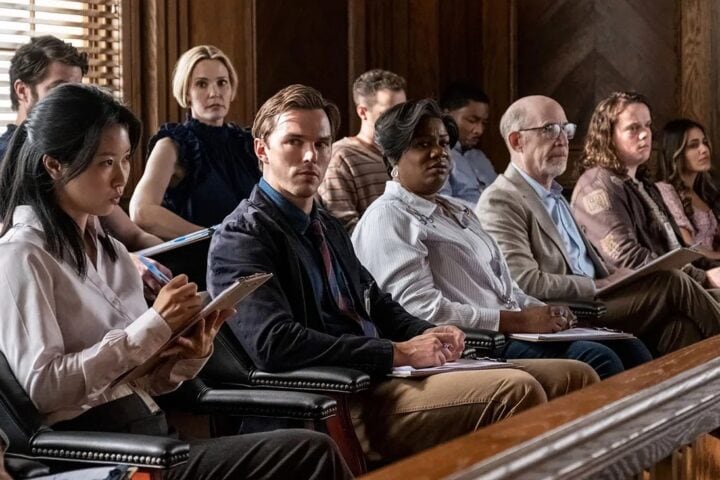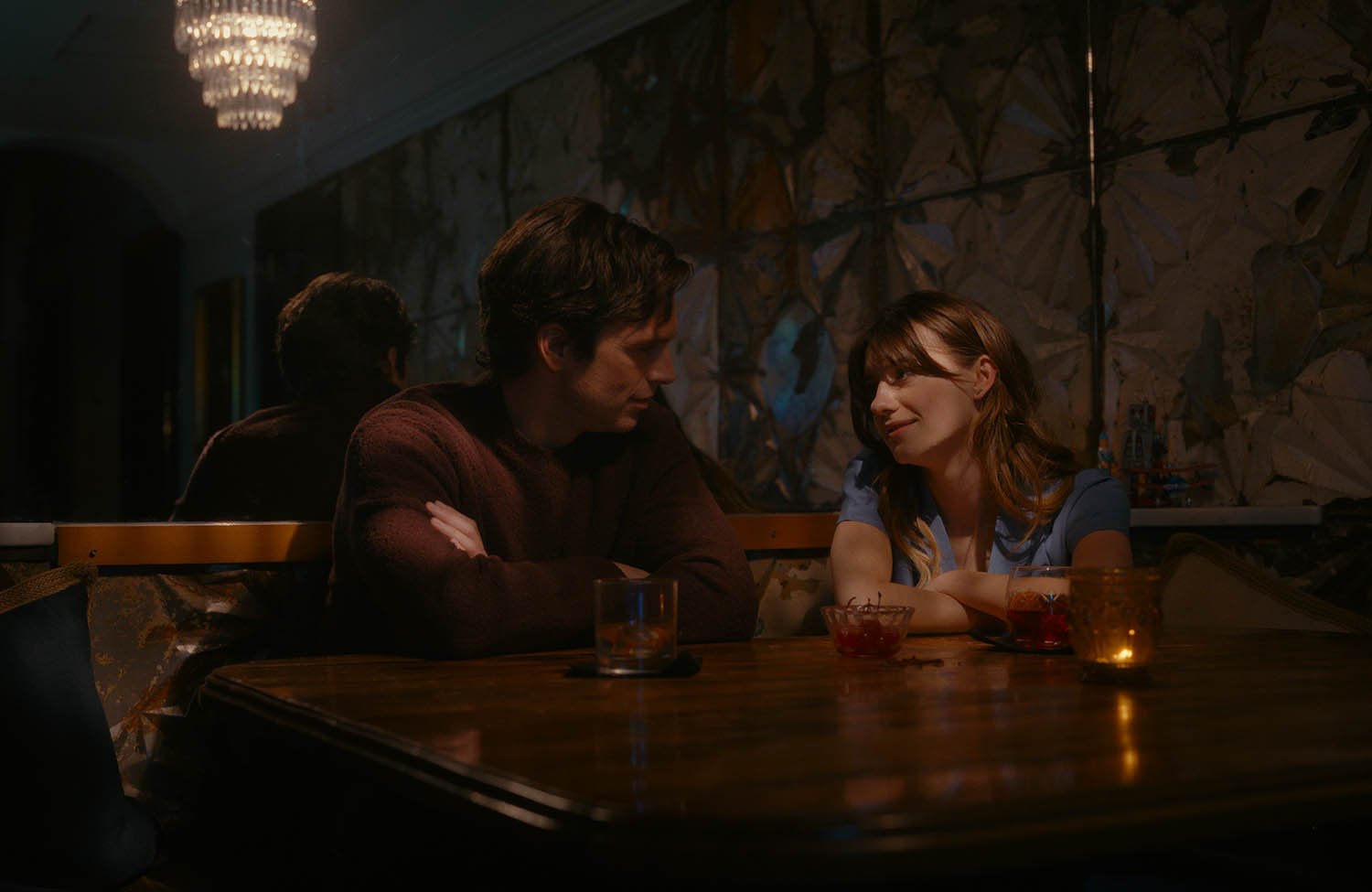Phyllis Nagy’s Call Jane is a message drama about the extreme steps taken by many women to obtain an abortion in the years just before the Supreme Court decriminalized the procedure in 1973. The film uses its protagonist, Joy (Elizabeth Banks), a suburban housewife and reluctant activist, to explore the subterfuge utilized by an underground abortionist network in Chicago in the late ’60s. While timely in arriving just as the right to an abortion in the U.S. is facing its most serious challenges in decades, Call Jane is a curiously staid and low-wattage story where, too often, things work out just fine for its characters.
Joy is introduced as living a cheerful-only-on-the-surface life, having abandoned dreams of pursuing the law in favor of being a wife, mother, and frequent ghostwriter of briefs for her lawyer husband, Will (Chris Messina). Her radicalization has two accelerants. The first is witnessing police beating up Yippie kids during the 1968 convention riots; in a deeply portentous scene, Joy tells Will that she can “feel the current shifting.” The second and more directly personal is when she discovers that her pregnancy is potentially life-threatening and her hospital refuses to sanction a legal “therapeutic termination” at a stunningly callous meeting where the roomful of male doctors won’t even look her in the eye.
Panicked, Joy telephones the “Call Jane” number that she saw on a flier. Subsequently, she’s driven blindfolded to a secret location where Dean (Cory Michael Smith), the network’s creepily callow doctor on call, gives her what they euphemistically call “the service.” Afterward, Joy thinks she can get back to her life, without telling anybody anything.
Much of Call Jane is taken up by Joy’s slow-then-fast participation in the Call Jane network after its de facto leader, Virginia (Sigourney Weaver), pushes Joy into taking on greater duties. Nagy’s film is at its most engaging when depicting the fractious, committed energy of the network’s volunteers as they argue politics and scheme new ways to use the money that they “scrounged from rich ladies” to provide more abortions. A very poor secret operative, Joy makes transparent excuses to Will and their daughter, Charlotte (Grace Edwards), about taking art classes. Meanwhile, Joy channels the restless mental energy that she once spent as Will’s humble ghostwriter into helping Call Jane expand and improve their operation.
Given the times, the dangers faced by Joy and any of the women in the network are substantial, ranging from social censure to abandonment by their families to arrest and prison, not to mention the threats presented by the mobsters who they pay protection money to. But Call Jane consistently fails to underline these risks and pressures. Watching Joy take the step of not just assisting Dean in giving abortions but learning how to do them herself is a brave development yet seems to happen in a risk-free environment. Will and Charlotte’s frustrations at Joy’s inexplicable disappearances barely register on either Joy or the film itself.
Seeing abortion as not an isolated issue but part of a wider patriarchal authority makes perfect sense for Hayley Schore and Roshan Sethi’s screenplay. Multiple scenes throughout Call Jane highlight the quiet desperation of many women’s lives, such as one where Joy’s heavy-drinking neighbor Lana (Kate Mara) pops her prescription pills “for when I feel…nothing.” But the film wastes screen time on stock moments of transgressive times-they-are-a-changin’ culture shifting, such as Joy dancing to the Velvet Underground’s “Sister Ray” and smoking her first joint. More egregiously, a jarring coda wraps up all the problems faced by Joy, her family, the network, and essentially all of American womanhood in a simplistic and tacked-on manner that does a great disservice to the sacrifice and struggle that preceded it.
Since 2001, we've brought you uncompromising, candid takes on the world of film, music, television, video games, theater, and more. Independently owned and operated publications like Slant have been hit hard in recent years, but we’re committed to keeping our content free and accessible—meaning no paywalls or fees.
If you like what we do, please consider subscribing to our Patreon or making a donation.






